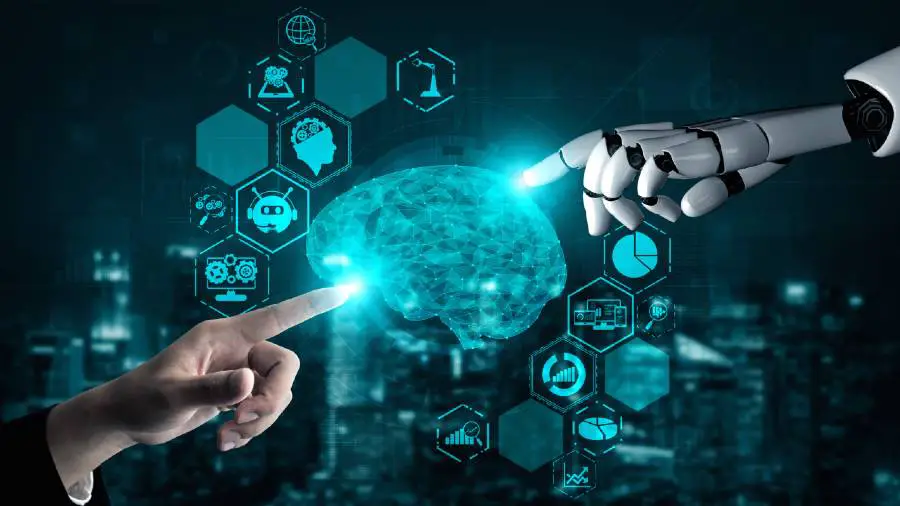AI for Good: Solving Global Challenges with Artificial Intelligence

AI (Artificial Intelligence) has emerged as a transformative technology with the potential to revolutionize various aspects of human life. Beyond its commercial applications, AI holds immense promise in addressing pressing global challenges. The concept of “AI for Good” encapsulates the ethical and responsible use of AI to tackle social, environmental, and humanitarian issues.

Healthcare: AI-powered systems can analyze vast amounts of medical data, aiding in disease diagnosis, predicting patient outcomes, and developing personalized treatment plans. They can facilitate faster and more accurate detection of diseases, leading to improved patient outcomes and cost savings.

Education: AI-driven tools can personalize learning experiences, catering to each student’s needs and learning styles. They can provide adaptive content, interactive exercises, and real-time feedback, boosting engagement and fostering a more equitable learning environment.
Climate Change: AI algorithms can process complex environmental data, enabling climate models, predicting weather patterns, and monitoring pollution levels. By providing accurate scientific insights, AI helps in designing effective climate mitigation and adaptation strategies.
Poverty Alleviation: AI can assist in identifying vulnerable populations, distributing aid efficiently, and automating administrative tasks. It can analyze social and economic data to predict poverty patterns and develop targeted interventions to uplift communities.
Social Justice: AI-driven systems can assist in recognizing and preventing discrimination, promoting fair hiring practices, and ensuring equal access to resources. By leveraging data analysis and machine learning, AI can uncover hidden biases and promote a more equitable society.
Ethical Considerations: The implementation of AI for Good requires careful consideration of ethical implications. It is crucial to ensure transparency, accountability, and bias mitigation in AI systems to avoid potential harm or discrimination. Collaboration between technologists, policymakers, and ethicists is essential to ensure responsible use of AI.
Conclusion: AI for Good represents a profound opportunity to leverage technological advancements for the betterment of humanity. By harnessing the potential of AI, we can strive to create a more sustainable, equitable, and prosperous world. However, ethical considerations, transparency, and collaboration are key to ensuring that AI serves the common good and remains a force for positive societal change.# AI for Good: Solving Global Challenges With Artificial Intelligence
Executive Summary
Artificial Intelligence (AI) is revolutionizing various industries, and its potential for solving global challenges is immense. AI applications can enhance efficiency, optimize decision-making, and automate tasks, leading to significant advancements in healthcare, education, environmental sustainability, and more. This article explores the diverse ways AI is being leveraged to address these challenges, highlighting successful initiatives and future opportunities.
Introduction
AI has emerged as a transformative technology with the ability to tackle complex problems and drive positive change. Its applications extend beyond traditional domains, offering innovative solutions to some of the world’s most pressing challenges. From advancing medical research to promoting environmental sustainability, AI is playing a pivotal role in shaping a better future.
FAQs
-
What is AI for Good?
AI for Good refers to the application of AI technologies to solve social and environmental problems, aiming to create a more equitable and sustainable world. -
How is AI being used to address global challenges?
AI is employed in various ways to tackle global challenges. It enhances scientific research, optimizes decision-making, automates tasks, and improves efficiency in diverse fields like healthcare, education, and environmental sustainability. -
What are some examples of AI for Good initiatives?
Notable examples include AI-driven disease diagnosis and treatment optimization in healthcare, personalized learning and adaptive assessments in education, and AI-powered energy consumption analysis and optimization for sustainability.
Subtopics
Healthcare
-
AI-Assisted Diagnosis:
- Image recognition and analysis for early disease detection and diagnosis
- Machine learning algorithms for predicting disease risk and optimizing treatment plans
- Virtual assistants and chatbots for patient support and monitoring
-
Drug Discovery and Development:
- AI-powered simulation and modeling for accelerated drug design
- Big data analysis for identifying promising drug candidates
- AI-driven clinical trial management for efficient patient recruitment and data collection
-
Personalized Medicine:
- AI-enabled analysis of individual patient data for tailored treatments
- Genetic profiling and risk assessment for proactive healthcare strategies
- AI algorithms for predicting response to specific therapies
Education
-
Personalized Learning:
- AI-driven adaptive learning systems tailored to individual student needs
- Automated grading and feedback for personalized assessments
- Virtual tutors and assistants for additional support
-
Skill Development and Training:
- AI-powered platforms for personalized skill development and career path identification
- Virtual reality and augmented reality simulations for immersive training experiences
- AI-enabled assessment tools for evaluating skills and progress
-
Access to Education:
- AI-driven language translation and tutoring for underprivileged students
- Remote learning platforms for expanding educational opportunities
- AI-powered chatbots for 24/7 student support
Environmental Sustainability
-
Climate Change Mitigation:
- AI-enabled energy consumption analysis and optimization
- Predictive modeling for renewable energy generation and distribution
- AI-driven carbon footprint estimation and reduction strategies
-
Pollution Monitoring and Remediation:
- AI-powered sensor networks for real-time pollution monitoring
- Machine learning algorithms for identifying pollution sources and trends
- AI-guided waste management and recycling systems
-
Conservation and Biodiversity:
- AI-driven species identification and population monitoring
- Image recognition and remote sensing for wildlife habitat analysis
- AI-powered predictive models for conservation planning
Conclusion
AI’s transformative potential is boundless, and its applications in addressing global challenges hold immense promise. By harnessing the power of AI, we can accelerate scientific advancements, enhance decision-making, and create a more equitable and sustainable world. As AI continues to evolve, we can expect even more innovative and groundbreaking solutions to emerge, shaping a future where technology empowers us to overcome the world’s most pressing challenges.
Keyword Tags
- Artificial Intelligence
- AI for Good
- Global Challenges
- Healthcare
- Education
- Environmental Sustainability
